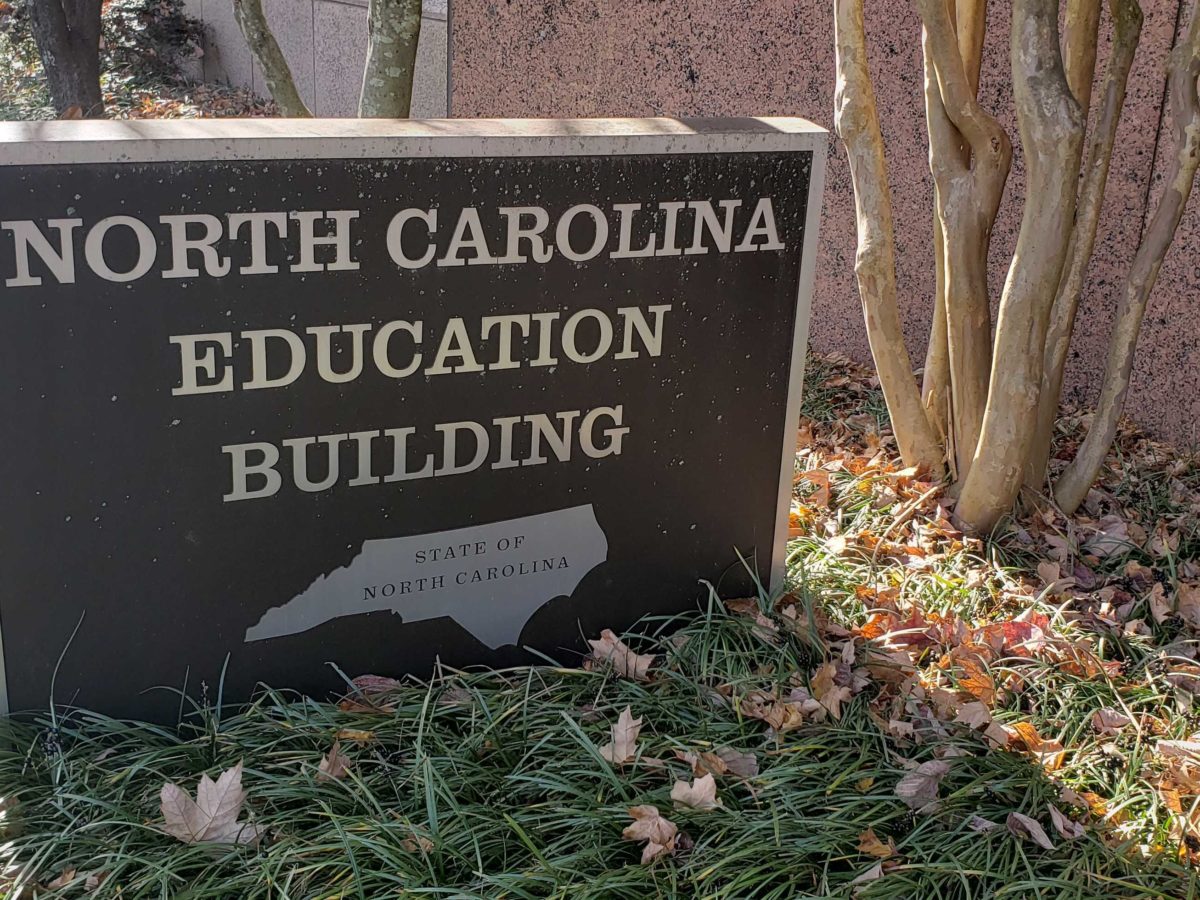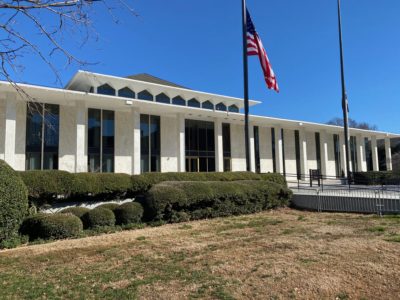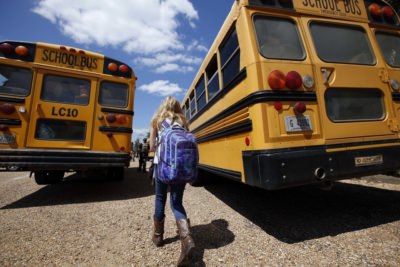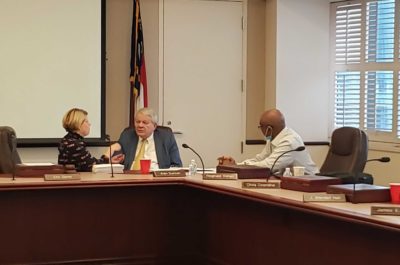

|
|
The State Board of Education’s last meeting of 2021 was a packed one. After months of waiting, the state budget was finally signed into law. And in a rare move, the State Board intervened in the hiring decisions of a local board of education.
The Board voted Dec. 2nd to remove Dr. Pamela Chamblee as superintendent of Northampton County Schools.
Last summer, Chamblee was fired by the Northampton board of education after just one year. She had been an educator for 30 years, spending time in Hertford, Northampton, and Halifax counties.
“Some feel that she’s doing a good job, but the majority felt like she was not taking them the direction that they wanted,” Board Chair Rhonda Taylor told the Roanoke-Chowan News-Herald at the time. Other board members cited issues with trust and employee treatment.
Then just a few weeks later, she was rehired after the swearing-in of four newly elected school board members.
According to a News-Herald article from the time, “there was no discussion amongst the board members about the decision to bring back the former superintendent.”
Department of Public Instruction (DPI) spokesperson Blair Rhoades said state statute allows the State Board to remove a local superintendent if:
- They fail to cooperate with an assigned DPI State Assistance Team;
- They take actions to hinder the ability of the school system to improve its low-performing status;
- And/or they are a superintendent in a district in which more than half of the schools are identified as low-performing.
A school district is “low-performing” when 50% or more of its schools are designated as “low-performing.” In 2018-19, the last time the state gave out performance grades due to the pandemic, five of the district’s seven schools were low-performing.
“The time has come for the State Board of Education and the Department of Public Instruction to use the authority vested in them to take a more direct role in addressing the needs of the Northampton County Schools by appointing a highly experienced Interim Superintendent who has an impressive track record of helping to lift achievement levels in school districts across the State,” Rhoades said in an emailed statement.
The State Board appointed former Wake County Schools Superintendent Dr. Del Burns as Chamblee’s interim replacement.
The Board also talked at length about the new state budget, which provides an additional $1.5 billion more in recurring funds over two years for public schools. Alexis Schauss, chief financial officer at DPI, broke down education-related budget changes for the Board.
You can read more about the budget, including a breakdown of salary changes, below.
The budget also tasks the State Board with developing a formula for determining full-time equivalency, or FTE, of a student enrolled in public school. The budget bill says this will be used to provide state funds on a per-pupil basis, a change from the current system of measuring average daily membership.
This is how North Carolina’s colleges are awarded funds. But it could be more difficult to determine what constitutes a full-time public school student because college students enroll by credits, Schauss told the Board.
Here’s what else you need to know from the State Board’s December meeting.
License exam for principals?
At its November meeting, the State Board learned that its policy does not match state statute regarding principal licensure. The statute requires principals to take a licensure exam, which hasn’t been administered in a decade.
The exam hasn’t been offered since 2011, said Thomas Tomberlin, director of educator recruitment and support at DPI. A law passed this year grants a waiver to any administrators licensed since the 2010-2011 school year, but now the Board is faced with the question of what to do next.
If they choose to amend the law as it is, they have to do so by August 2022.
“There is no data to support a licensure test or not licensure test,” Dr. Tomberlin said. “The only thing I can do is point to what we know about teacher licensure exams. In some cases, they correlate with better student outcomes and better teacher effectiveness… but by and large, for our teachers, licensure exams are not predictive of better student outcomes.”
Kisha Clemons, 2020 Wells Fargo N.C. Principal of the Year, said she took the exam but doesn’t think it impacted her ability to be an effective leader.
“If we haven’t had it in 10 years and we have created some very strong, effective principals without it, I don’t see a justification for that,” she said.
Board member Olivia Oxendine said the exams are not only meant to be a predictor of performance but also a measure of preparation. She compared it to licensure exams for other fields, such as attorneys taking the bar or a cosmetology license.
“It’s not so much about whether the hairdresser is going to be a millionaire,” she said. “It’s more about whether the hairdresser has gone through a legitimate, strong, viable program that has prepared that person to work in the state of North Carolina.”
Tomberlin pointed out that exams can be a barrier for marginalized people to enter the teaching profession.
Current statute also requires a 10-month internship for principal candidates. While Board members had differing opinions on the license exam, they largely agreed that the internship requirement provides valuable experience for would-be principals.
Next steps include getting feedback and the Professional Educator Preparation and
Standards Commission coming up with a recommendation. You can see the full presentation on principal licensure here.
Raising the high school dropout age
Four districts are participating in a pilot program to raise the dropout age from 16 to 18, and the Board reviewed the program’s report to the state legislature on Dec. 1st.
Data from the districts involved — Hickory City Schools, Newton-Conover City Schools, Rutherford County Schools, and McDowell County Schools — show that dropout and graduation rates fluctuated, but the number of short-term suspensions increased.
The report argued that it isn’t enough to give the student additional time if there aren’t wraparound services to support the student. Communication of the change in the dropout age is essential, the report reads, but the district needs to communicate with “local social services, the courts, and other agencies who support students and families.”
Read the full report here.
The report also pointed out that North Carolina recently raised the age to be tried as an adult to 18 as well.
“To put it bluntly, it’s a no-brainer,” Elena Ashburn, 2021 Wells Fargo N.C. Principal of the Year, said. “I think we raised the age to 18 because our expectation is that you should be in school and you should graduate, and to me, the policy should follow our expectations.”







